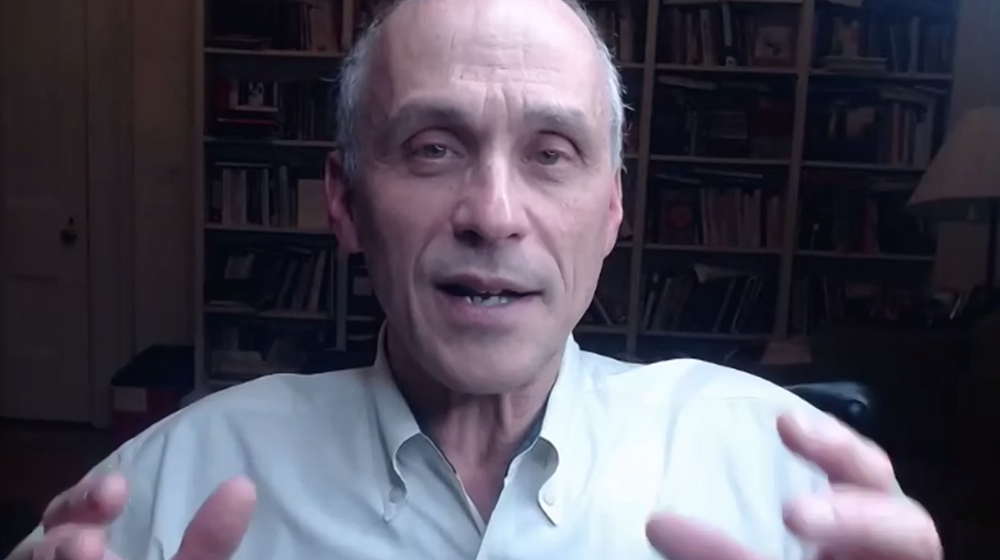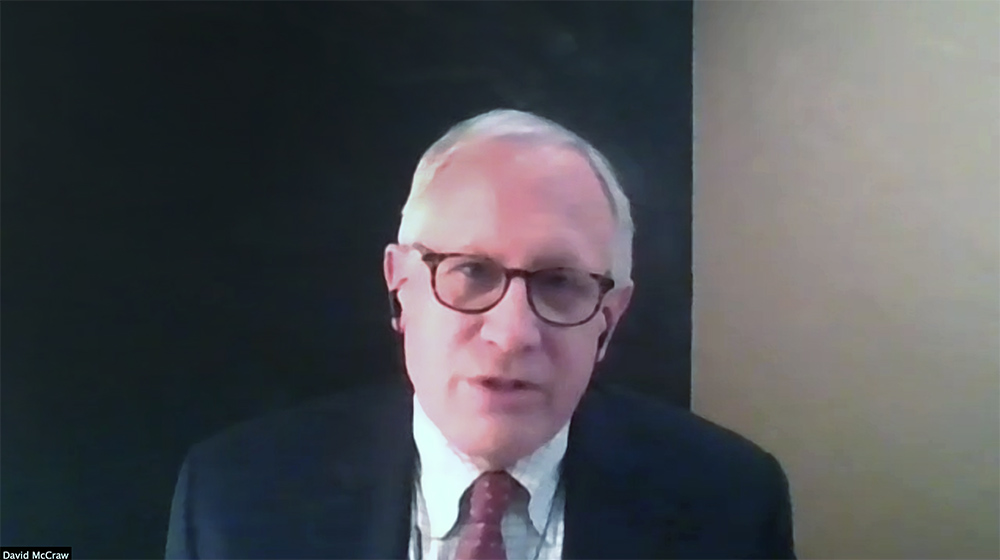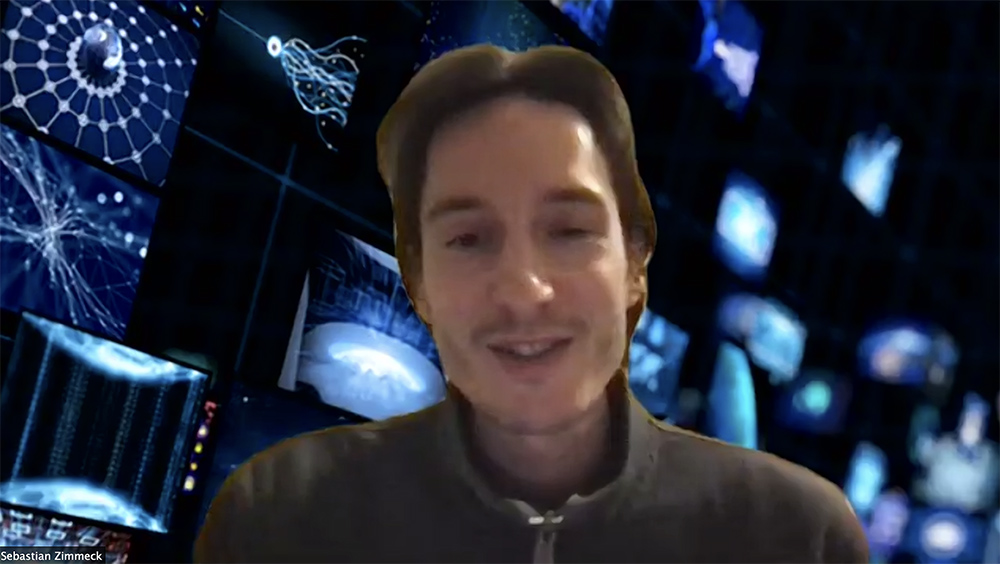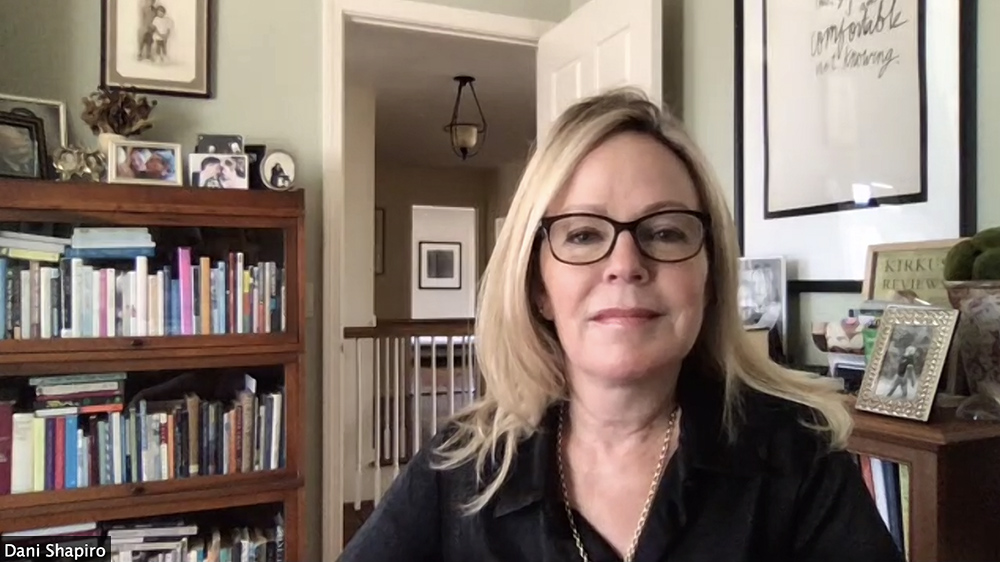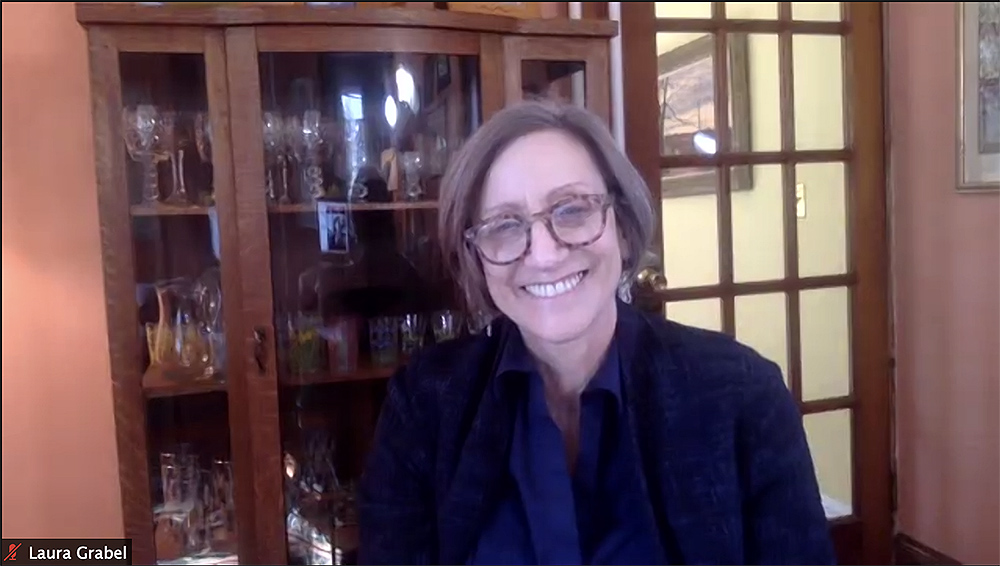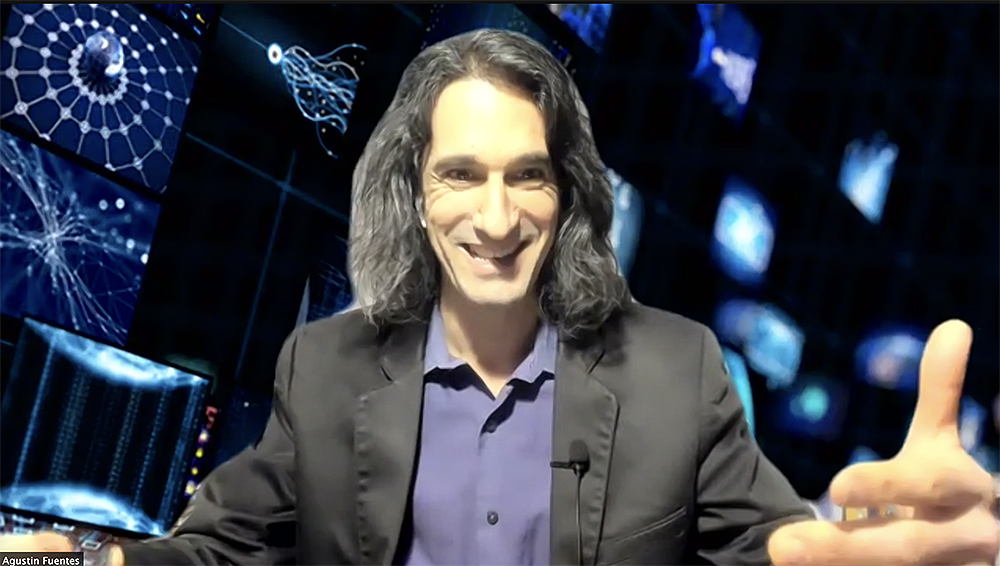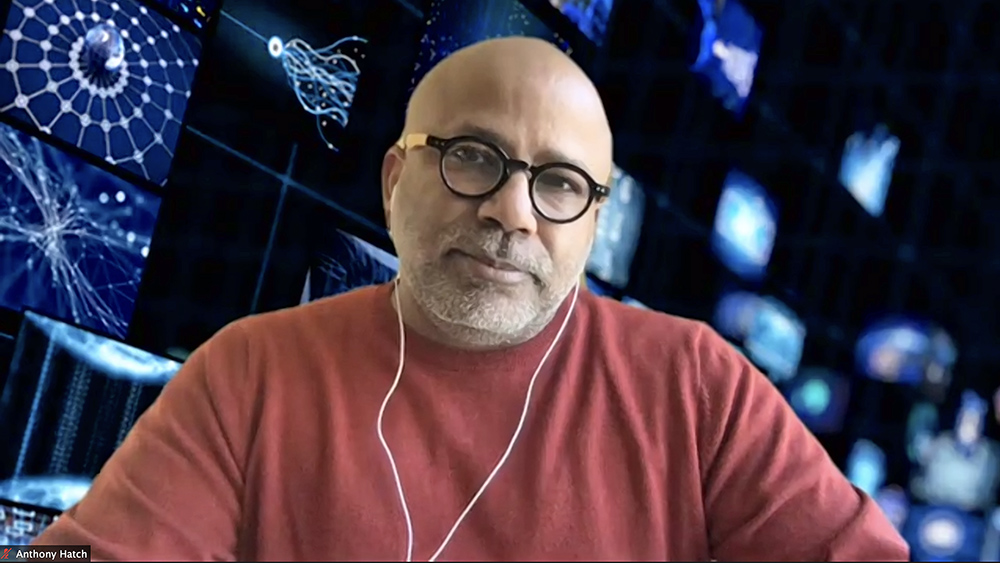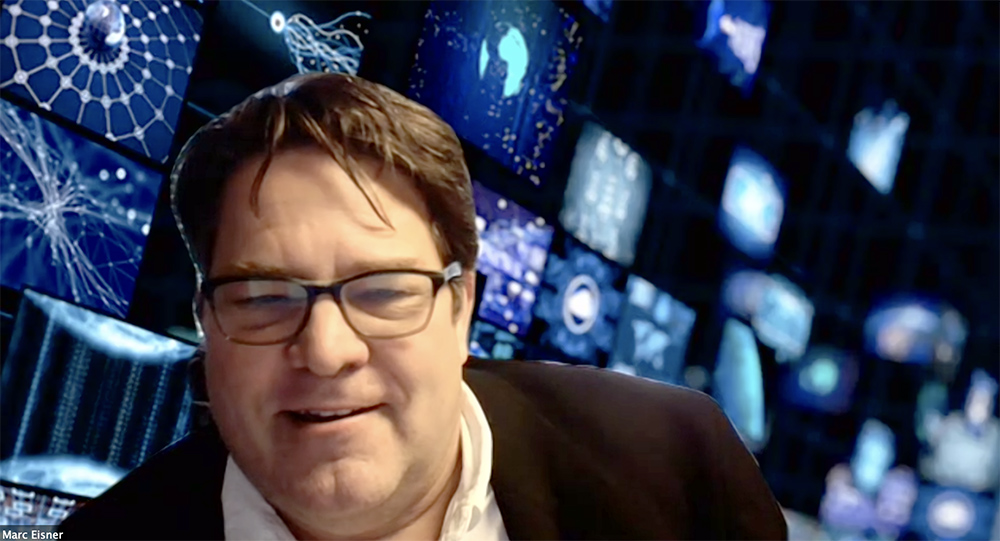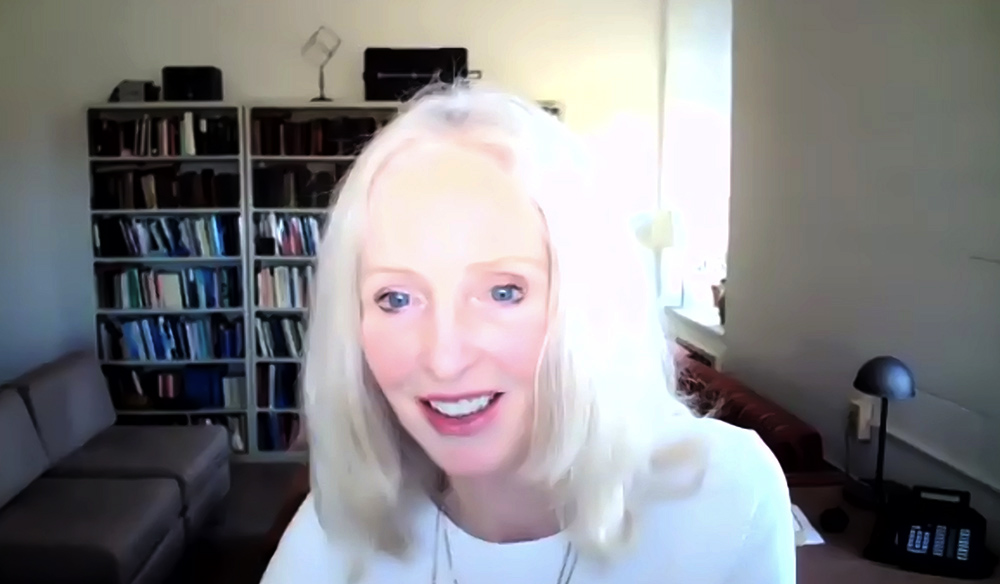Campus Community Explores “Truth (and Lies) in Our Time” During Shasha Seminar


During the 2021 Shasha Seminar for Human Concerns, held March 11–13, participants explored the topic of “Truth (and Lies) in Our Time.”
The Shasha Seminar is an annual educational forum for Wesleyan alumni, parents, and friends that provides an opportunity to explore issues of global concern in a small seminar environment. Endowed by James Shasha ’50, P’82, the Shasha Seminar supports lifelong learning and encourages participants to expand their knowledge and perspectives on significant issues.
David McCraw, vice president and deputy general counsel for The New York Times, presented the Shasha Seminar’s keynote address titled “Lies and Liberty: The Future of Free Speech in a Divided America.”
“Think about the information ecosystem as a spring-fed lake,” McCraw said. “You need that spring, with its fresh water, to flow and replenish the lake. Think of that as vital public information. And you need to stop people who are polluting the lake. Think of that as disinformation and misinformation.”
Other speakers included Mitali Thakor, assistant professor of science in society; Andrew Bleeker ’07, president and founder of Bully Pulpit Interactive; Dani Shapiro P’22, nonfiction writer; Jeffrey Hancock, the Harry and Norman Chandler Professor of Communication at Stanford University; and Agustín Fuentes, professor of anthropology at Princeton University. Moderators included Sebastian Zimmeck, assistant professor of computer science; Benjamin Haber, visiting assistant professor of sociology; Laura Grabel, professor of biology, emerita; Anthony Ryan Hatch, associate professor of science in society; and Marc Eisner, Harry Merritt Wriston Chair in Public Policy and professor of government. (View the speaker’s and moderator’s bios online here.)
The Shasha Seminar was organized by Jill Morawski, Wilbur Fisk Osborne Professor of Psychology and chair of the Psychology Department.
Wesleyan President Michael Roth ’78 welcomed participants to the virtual Shasha Seminar on March 11. “Educating ourselves about misinformation and how to detect it, about lies and how to combat them—this is absolutely crucial at this moment in our nation’s history. I don’t know if we can say with confidence that ‘the truth will set us free,’ but I am confident that inquiry is a necessary condition of freedom,” he said. ” I look forward to learning from our speakers, learning from our audience, and being stimulated by your perceptive observations.”
On March 11, David McCraw presented the Shasha Seminar’s keynote address. “Think about your own life. Think about how you process information, what influence is shared. [Think about] what you read on Facebook and what you read in The Times . . . what you hear in class, and what you hear from friends,” he said. “How do they interact to determine which facts you accept?” McCraw is the author of the book Truth in Our Times: Inside the Fight for Press Freedom in the Age of Alternative Facts (St. Martin’s, 2019), a first-person account of the legal battles that helped shape The Times’s coverage of Donald Trump, Harvey Weinstein, national security, and the rise of political partisanship in America. He has been at the Times for 19 years.
On March 12, Jeffrey Hancock, Harry and Norman Chandler Professor of Communication at Stanford University, opened his panel on “The Shifting Tides of Trust and Truth” with a picture from the famous fable “The Boy Who Cried Wolf.” Using this metaphor, he explained the ways in which ‘fake news’ has become pervasive in the lives of Americans. Hancock shared data from multiple areas of research that provide numerical evidence of the ways in which Americans detect deception in the news and broader media. “Most of the time we’re being told the truth,” Hancock said, but “there are a lot of wolves out there.”
Hancock, who is the founding director of Stanford’s Social Media Lab, also stressed the importance of local news and checking trusted resources against the news one is consuming. “News travels farther and faster—not because it’s fake, but usually because it tends to be surprising and scary,” Hancock said. “We know that people have a preference for these negative things. It’s not new to social media, but social media has sort of allowed it to take over its algorithms. So . . . there are these properties of anxiety-provoking surprise and fear that allow it to work.”
Hancock’s talk was moderated by Benjamin Haber, visiting assistant professor of sociology. Haber is an expert on media, embodiment, affect and identity, and helped broaden the discussion to include questions about accountability, polarization, and digital literacy—especially in the senior population. Following Hancock’s talk, Haber expanded the conversation to discuss the consequences of outright lying, Q-Anon, half-truths, and international and local apparatuses of truth.
Also on March 12, Mitali Thakor, assistant professor of science in society, led a discussion on “Deepfakes in the Age of Misinformation.” The term “deepfake” is a combination of the words “deep learning” and “fake.” Deepfakes are an advanced form of artificial intelligence used to create false identities, and are often used to spread false information.
Ultimately, despite the terrifying potential that deep fakes hold, Thakor argued that “much of the panic is overblown. We’ve been so obsessed with finding the truth behind the images… that we’ve equated this technological fight for truth with a restoration of democracy. But that doesn’t get at the larger issue of creating a culture of misinformation or disinformation.” Thus, rather than focusing on the “truth,” Thakor asked the audience to shift their focus to a more immediate problem: how we can hold big tech accountable for their in-house content moderation when it is performed by outsourced human laborers.
Sebastian Zimmeck, assistant professor of computer science, moderated Thakor’s talk. He remarked on humanity’s long history of manipulating media, commenting that now, “We are moving into new technologies that allow us to do this in more sophisticated ways.” He spoke about how the problem presented by deepfakes plays into populism and our tendency to exaggerate the way we present ourselves on social media. He also questioned the “scale” of the effects of deep fake technologies, asking, “Is this a purely technical problem, or is this a problem of human nature? What scope must we consider here?”
On March 13, Dani Shapiro P’22, nonfiction writer and author of Inheritance: A Memoir of Genealogy, Paternity, and Love, discussed “Family Secrets.” Shapiro, an only child, explained to the audience her discovery of her own biological identity through a DNA test long after the death of both of her parents. The test revealed that Shapiro’s father was not related to her biologically, beginning her journey into understanding the ways in which sperm/egg donation can create confusion for children uninformed of their origin stories. “The thing about secrets is that they never really go away. They just morph and become. They take on different shapes. They become something other than conscious knowledge,” Shapiro said.
Shapiro’s talk was moderated by Laura Grabel, professor of biology, emerita. Grabel is a developmental and stem cell biologist who uses pluripotent stem cells to examine the specification and differentiation of various mature cell types. Grabel helped lead the panel to explore a lively discussion about privacy rights, the ethics of sperm donation, and the taboo of male infertility.
Also, on March 13, Agustín Fuentes, of Princeton University, spoke on “Race is Not the Risk Factor, Racism Is: Fabrication, Ignorance and Malicious Intent in the ‘Myth of Race’ in the Contemporary USA.” He argued that there is no actual biological basis for the strict categorization of humans into races, saying that 23andMe and similar platforms are lying by omission when they purport to deliver your racial ancestry; instead of breaking down your genetic makeup, “they should tell you you are 99.9% identical to everybody else on the planet,” he said. Fuentes argued the source of race lies in racism: “Racism, a social-historical political active process of violence and structure, is what explains these differences, not inherent biology.” Thus he argued that we must attempt to “bust through this lie” of race by actively recognizing that “all of these inequities are not natural, inevitable, or even structured by some facet of our biology.”
Anthony Ryan Hatch, associate professor of science in society, served as a respondent to Fuentes’ talk and commented on racism as a “one-two combination punch,” in the sense that racism is “a policy first, and an ideology second.” To understand race, “the United States has to understand the transatlantic slave trade. One has to understand the initial economic structuring of the colonies and the emergence of the United States. One has to understand the legal and structural governance system put in place to maintain particular kinds of equities, and one has to understand that when European colonists arrived in North America, there were millions of Indigenous inhabitants with incredible cities and connections and trade routes and political organizations,” Hatch said. “Without understanding all of that, then then we’re sort of weakened in our ability to discuss [race], and I think that’s really important.”
“There’s a reason that Make America Great Again worked,” said panelist Andrew Bleeker ’07, president and founder of Bully Pulpit Interactive. During his March 13 talk on “The Two 2020 Elections,” Bleeker explained the ways in which data has shown shifting and alarming trends in American politics over the past four years. This year’s election had a record turnout of 160 million voters. Bleeker posed questions to the audience about the divided country, framing political polarization as a one-third/two-thirds problem, rather than a country divided in half. “This was not an election where most people sat at home, and it was just one little lie or one little piece of information [that] duped them,” he said. “This was an election where the country was tuned in and it was tuned in . . . in record numbers.”
Bleeker’s talk was moderated by Marc Eisner, professor of government. Both Bleeker and Eisner agreed that by and large, there is more movement on the right toward radicalism, and the country must start looking for some sort of solution, rather than viewing compromise as a sign of weakness. “We live in fascinating times, and one of the things that American political scientists have been very interested in is the growing impact of political polarization,” Eisner said. “There’s overwhelming evidence that the two parties have become more ideologically extreme, more internally homogeneous.”
The weekend concluded with a plenary session that invited all of the panelists to discuss truth and lies and to answer questions from audience members. The session reminded audience members that people live in different versions of America, and we must listen and recognize the diverse audiences that are engaged.
“We acknowledge that in our time, truth is challenging. Differences between truth and lies, honesty and deception, real and fake, and information and disinformation have all led everyday actors to certain challenges in understanding truth and what to do with lies,” Morawski said.
(Hannah Berman ’21 and Talia Zitner ’23 contributed to this article.)
